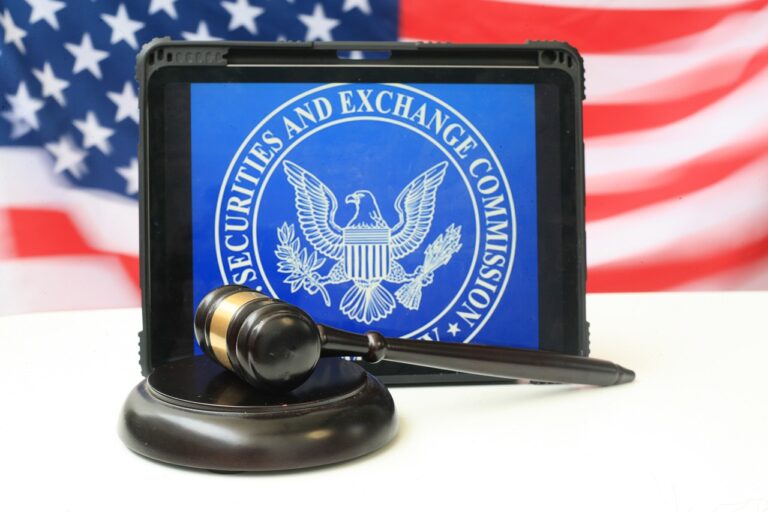
On 28 August 2023, the U.S. Securities and Exchange Commission (SEC) announced that it had charged Impact Theory, LLC, a Los Angeles-based media and entertainment company, for conducting an unregistered offering of crypto asset securities in the form of non-fungible tokens (NFTs). The company had sold nearly $30 million worth of NFTs, promising buyers that the tokens would appreciate in value. However, SEC Commissioners Hester M. Peirce and Mark T. Uyeda issued a dissenting statement, questioning the SEC’s application of the Howey analysis to NFTs and raising broader concerns about the Commission’s approach to this emerging asset class.
The dissenting commissioners acknowledged the SEC’s concerns about the hype surrounding NFTs, which led people to invest almost $30 million without a clear understanding of the asset’s utility or profitability. However, they argued that such concerns were not sufficient grounds for SEC jurisdiction. They pointed out that the promises made by Impact Theory were not the kind that would form an investment contract under securities laws.
They wrote:
<!–
–> <!–
–>
“We do not routinely bring enforcement actions against people that sell watches, paintings, or collectibles along with vague promises to build the brand and thus increase the resale value of those tangible items.“
The company had already offered to repurchase the NFTs twice, paying out a total of $7.7 million in Ether, which, according to the commissioners, should have been an adequate remedy for any registration violations.
Peirce and Uyeda emphasized that the SEC should have offered guidance on NFTs long before taking enforcement action. They posed several questions that the Commission needs to address:
- How should NFTs be categorized for the purpose of applying securities laws, given their diverse uses and rights?
- What guidance could the SEC provide to NFT creators about potential intersections with securities laws?
- How should recent legislative efforts in crypto regulation inform the SEC’s approach to NFTs?
- Is a securities law framework the best way to ensure that NFT buyers have the information they need? Are there alternative regulatory frameworks that might be more appropriate?
- How could SEC registration requirements be tailored to NFTs without being prohibitively costly?
- Does this action imply that the SEC views all previous NFT offerings as securities? Will there be specific guidance for those issuers?
- What restrictions should apply to secondary market sales of NFTs sold as investment contracts?
- The settlement includes a clause requiring the issuer to destroy NFTs in its possession and eliminate any royalties. What precedent does this set for future cases involving NFTs that represent unique digital art or music?
Featured Image Credit: Photo / illustration by sergeitokmakov via Pixabay
- SEO Powered Content & PR Distribution. Get Amplified Today.
- PlatoData.Network Vertical Generative Ai. Empower Yourself. Access Here.
- PlatoAiStream. Web3 Intelligence. Knowledge Amplified. Access Here.
- PlatoESG. Automotive / EVs, Carbon, CleanTech, Energy, Environment, Solar, Waste Management. Access Here.
- PlatoHealth. Biotech and Clinical Trials Intelligence. Access Here.
- ChartPrime. Elevate your Trading Game with ChartPrime. Access Here.
- BlockOffsets. Modernizing Environmental Offset Ownership. Access Here.
- Source: https://www.cryptoglobe.com/latest/2023/08/two-u-s-sec-commissioners-challenge-first-nft-related-enforcement-action/
- :is
- :not
- 2023
- 28
- 7
- 8
- a
- About
- According
- acknowledged
- Action
- actions
- address
- Ads
- against
- All
- along
- already
- alternative
- an
- analysis
- and
- any
- Application
- Apply
- Applying
- appreciate
- approach
- appropriate
- ARE
- argued
- Art
- AS
- asset
- asset class
- AUGUST
- BE
- been
- before
- being
- BEST
- brand
- bring
- broader
- build
- buyers
- by
- cases
- charged
- class
- clear
- collectibles
- commission
- company
- Concerns
- conducting
- contract
- contracts
- costly
- could
- creators
- credit
- crypto
- crypto asset
- Crypto regulation
- CryptoGlobe
- destroy
- digital
- Digital Art
- diverse
- do
- does
- efforts
- eliminate
- emerging
- emphasized
- enforcement
- ensure
- Entertainment
- ETH
- Ether
- exchange
- First
- For
- form
- Framework
- frameworks
- future
- given
- grounds
- guidance
- had
- Have
- However
- Howey
- HTTPS
- Hype
- image
- Impact
- in
- includes
- Increase
- inform
- information
- Invest
- investment
- involving
- Issued
- Issuer
- issuers
- IT
- items
- ITS
- jpg
- jurisdiction
- Kind
- Law
- Laws
- Led
- Legislative
- LLC
- Long
- los
- made
- mark
- Market
- Media
- might
- million
- more
- Music
- nearly
- Need
- needs
- NFT
- nft creators
- NFTs
- non-fungible
- non-fungible tokens
- NON-FUNGIBLE TOKENS (NFTS)
- nothing
- of
- offered
- offering
- Offerings
- on
- or
- out
- paintings
- paying
- People
- plato
- Plato Data Intelligence
- PlatoData
- posed
- possession
- potential
- Precedent
- previous
- profitability
- promises
- promising
- provide
- purpose
- question
- Questions
- raising
- recent
- Registration
- Regulation
- regulatory
- represent
- Requirements
- restrictions
- rights
- routinely
- royalties
- s
- sales
- Screen
- screens
- SEC
- secondary
- Secondary Market
- Securities
- Securities and Exchange Commission
- Securities Laws
- sell
- set
- settlement
- several
- should
- sizes
- sold
- specific
- such
- sufficient
- Surrounding
- tailored
- taking
- tangible
- that
- The
- the information
- their
- theory
- There.
- they
- this
- those
- Thus
- to
- Tokens
- Total
- true
- Twice
- two
- u.s.
- U.S. Securities
- U.S. Securities and Exchange Commission
- under
- understanding
- unique
- unregistered
- use
- uses
- utility
- value
- views
- Violations
- watches
- Way..
- we
- were
- What
- which
- will
- with
- without
- witnessing
- worth
- would
- wrote
- zephyrnet













